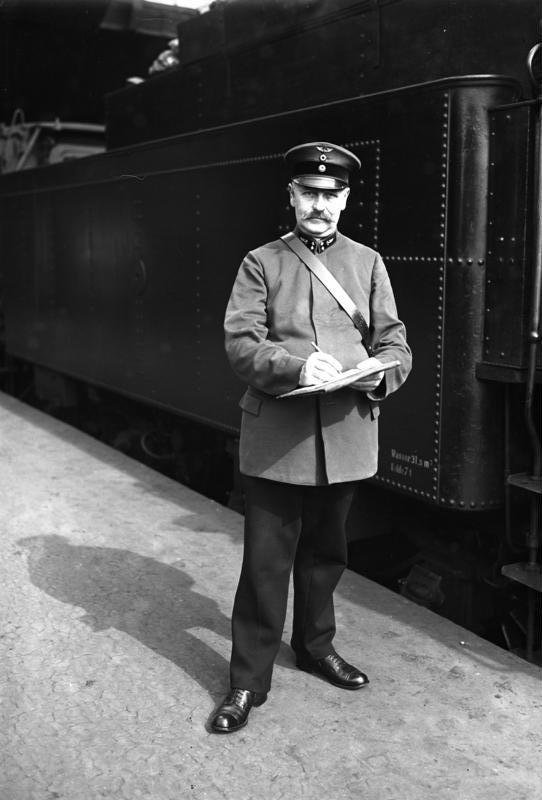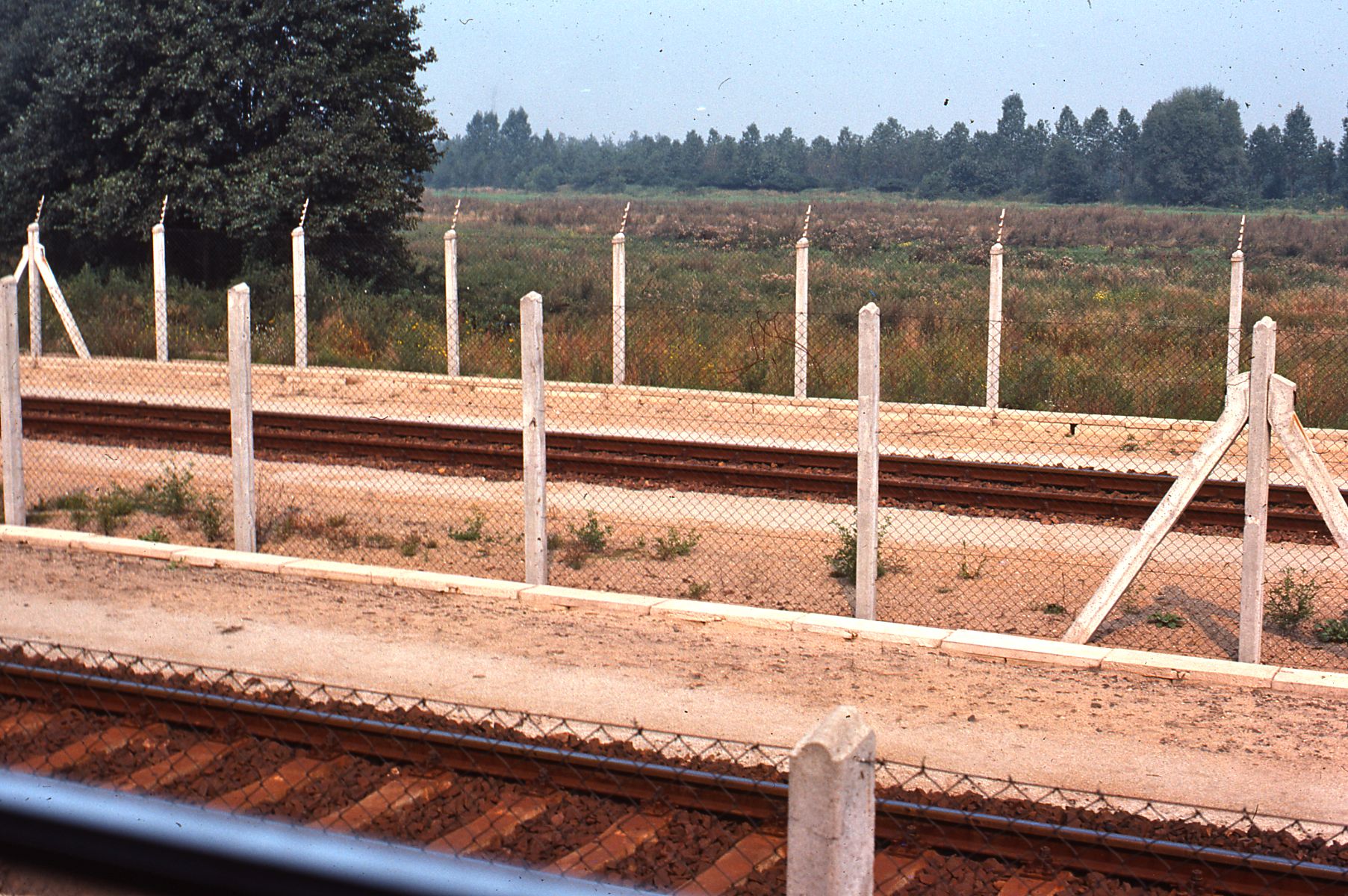|
Reichsbahn
The ''Deutsche Reichsbahn'', also known as the German National Railway, the German State Railway, German Reich Railway, and the German Imperial Railway, was the German national railway system created after the end of World War I from the regional railways of the individual states of the German Empire. The ''Deutsche Reichsbahn'' has been described as "the largest enterprise in the capitalist world in the years between 1920 and 1932"; nevertheless its importance "arises primarily from the fact that the Reichsbahn was at the center of events in a period of great turmoil in German history". Overview The company was founded on 1 April 1920 as the ("German Imperial Railways") when the Weimar Republic, which still used the nation-state term of the previous monarchy, (German Reich, hence the usage of the in the name of the railway; the monarchical term was ), took national control of the German railways, which had previously been run by the German states. In 1924 it was reorganise ... [...More Info...] [...Related Items...] OR: [Wikipedia] [Google] [Baidu] |
Deutsche Reichsbahn (East Germany)
The Deutsche Reichsbahn or DR ''(German Reich Railways)'' was the operating name of state owned railways in the German Democratic Republic (East Germany), and after German reunification until 1 January 1994. In 1949, occupied Germany's railways were returned to German control after four years of Allied control following World War II. Those in the Soviet occupation zone (which became the German Democratic Republic or GDR on 7 October 1949) continued to run as the Deutsche Reichsbahn, the name given to the German national railways in 1937. In West Germany, the Reichsbahn was succeeded by the Deutsche Bundesbahn (DB). Both the Reichsbahn and the Bundesbahn continued as separate entities until 1994, when they merged to form the Deutsche Bahn. Organisation The DR was the largest employer in the GDR and as a state-owned firm was directly subordinated to the GDR Ministry of Transport ''(Ministerium für Verkehr der DDR)''. From November 1954 until November 1989, the GDR Minist ... [...More Info...] [...Related Items...] OR: [Wikipedia] [Google] [Baidu] |
Deutsche Bahn
The (; abbreviated as DB or DB AG) is the national railway company of Germany. Headquartered in the Bahntower in Berlin, it is a joint-stock company ( AG). The Federal Republic of Germany is its single shareholder. describes itself as the second-largest transport company in the world, after the German postal and logistics company / DHL, and is the largest railway operator and infrastructure owner in Europe. Deutsche Bahn was the largest railway company in the world by revenue in 2015; in 2019, DB Passenger transport companies carried around 4.8 billion passengers, and DB logistics companies transported approximately 232 million tons of goods in rail freight transport. The group is divided into several companies, including '' DB Fernverkehr'' (long-distance passenger), '' DB Regio'' (local passenger services) and '' DB Cargo'' (rail freight). The Group subsidiary '' DB Netz'' also operates large parts of the German railway infrastructure, making it the largest rail netwo ... [...More Info...] [...Related Items...] OR: [Wikipedia] [Google] [Baidu] |
Deutsche Bundesbahn
The Deutsche Bundesbahn or DB (German Federal Railway) was formed as the state railway of the newly established Federal Republic of Germany (FRG) on 7 September 1949 as a successor of the Deutsche Reichsbahn-Gesellschaft (DRG). The DB remained the state railway of West Germany until after German reunification, when it was merged with the former East German Deutsche Reichsbahn (DR) to form Deutsche Bahn, which came into existence on 1 January 1994. Background After World War II, each of the military governments of the Allied Occupation Zones in Germany were ''de facto'' in charge of the German railways in their respective territories. On 10 October 1946, the railways in the British and American occupation zones formed the ''Deutsche Reichsbahn im Vereinigten Wirtschaftsgebiet'' (German Imperial Railway in the united economic area), while on 25 June 1947, the provinces under French occupation formed the Südwestdeutsche Eisenbahn. With the formation of the FRG these succes ... [...More Info...] [...Related Items...] OR: [Wikipedia] [Google] [Baidu] |
Reich
''Reich'' (; ) is a German noun whose meaning is analogous to the meaning of the English word " realm"; this is not to be confused with the German adjective "reich" which means "rich". The terms ' (literally the "realm of an emperor") and ' (literally the "realm of a king") are respectively used in German in reference to empires and kingdoms. The ''Cambridge Advanced Learner's Dictionary'' indicates that in English usage, the term " the Reich" refers to "Germany during the period of Nazi control from 1933 to 1945". The term '' Deutsches Reich'' (sometimes translated to " German Empire") continued to be used even after the collapse of the German Empire and the abolition of the monarchy in 1918. There was no emperor, but many Germans had imperialistic ambitions. According to Richard J. Evans: The continued use of the term 'German Empire', ''Deutsches Reich,'' by the Weimar Republic ... conjured up an image among educated Germans that resonated far beyond the institutional st ... [...More Info...] [...Related Items...] OR: [Wikipedia] [Google] [Baidu] |
ÖBB
The Austrian Federal Railways (german: Österreichische Bundesbahnen, formally (lit. "Austrian Federal Railways Holding Stock Company") and formerly the or ''BBÖ''), now commonly known as ÖBB, is the national railway company of Austria, and the administrator of Liechtenstein's railways. The ÖBB group is owned entirely by the Republic of Austria, and is divided into several separate businesses that manage the infrastructure and operate passenger and freight services. The Austrian Federal Railways has had two discrete periods of existence. It was first formed in 1923, using the ''Bundesbahn Österreich'' name, as a successor to the Imperial Royal Austrian State Railways (kkStB), but was incorporated into the ''Deutsche Reichsbahn'' during the 1938–1945 Anschluss. It was reformed in 1947, under the slightly different name ''Österreichische Bundesbahnen'', and remains in existence in this form. Major changes currently being made to the Austrian railway netw ... [...More Info...] [...Related Items...] OR: [Wikipedia] [Google] [Baidu] |
Länderbahnen
The ''Länderbahnen'' (singular: ''Länderbahn'') were the various state railways of the German Confederation and the German Empire in the period from about 1840 to 1920, when they were merged into the Deutsche Reichsbahn after the First World War. The state railways Railways merged into the Deutsche Reichsbahn The seven state railways forming the merger were the: *Prussian state railways (''Preußische Staatseisenbahnen'' or ''P.St.E.'') *Royal Bavarian State Railways (''Königlich Bayerische Staatseisenbahn'' or ''K.Bay.Sts.B.'') *Royal Saxon State Railways (''Königlich Sächsische Staatseisenbahnen'' or ''K.Sächs.Sts.E.B.'') *Royal Württemberg State Railways (''Königlich Württembergische Staatseisenbahn'' or ''K.W.St.E.'') *Grand Duchy of Baden State Railways (''Großherzoglich Badische Staatseisenbahn'' or ''G.Bad.St.E.''), 1840–1920 * Grand Duchy of Mecklenburg Friedrich-Franz Railway (''Großherzoglich Mecklenburgische Friedrich-Franz-Eisenbahn'' or ''M.F.F.E.'') * ... [...More Info...] [...Related Items...] OR: [Wikipedia] [Google] [Baidu] |
East Germany
East Germany, officially the German Democratic Republic (GDR; german: Deutsche Demokratische Republik, , DDR, ), was a country that existed from its creation on 7 October 1949 until its dissolution on 3 October 1990. In these years the state was a part of the Eastern Bloc in the Cold War. Commonly described as a communist state, it described itself as a socialist "workers' and peasants' state".Patrick Major, Jonathan Osmond, ''The Workers' and Peasants' State: Communism and Society in East Germany Under Ulbricht 1945–71'', Manchester University Press, 2002, Its territory was administered and occupied by Soviet forces following the end of World War II—the Soviet occupation zone of the Potsdam Agreement, bounded on the east by the Oder–Neisse line. The Soviet zone surrounded West Berlin but did not include it and West Berlin remained outside the jurisdiction of the GDR. Most scholars and academics describe the GDR as a totalitarian dictatorship. The GDR was est ... [...More Info...] [...Related Items...] OR: [Wikipedia] [Google] [Baidu] |
French Eastern Railway Company
The Compagnie des chemins de fer de l'Est (CF de l'Est), often referred to simply as the Est company, was an early French railway company A railway company is a company within the rail industry. It can be a manufacturing firm or an operator. Some railway companies operate both the trains and the track, while, particularly in the European Union, operation of the track is undertake .... The company was formed in 1853 by the merger of ''Compagnie du chemin de fer de Paris à Strasbourg'', operating the Paris-Strasbourg line, and ''Compagnie du chemin de fer de Montereau à Troyes''. In 1938 it became part of the majority state-owned Société Nationale des Chemins de fer Français (SNCF). History In 1854 the company absorbed the ''Compagnie du chemin de fer de Strasbourg à Bale'', in 1858 the Compagnie du chemin de fer de Mulhouse à Thann and in 1863 the railway network of the ''compagnie du chemin de fer des Ardennes''. Bibliography * * * * * The author reports on t ... [...More Info...] [...Related Items...] OR: [Wikipedia] [Google] [Baidu] |
Straßburg
Strasbourg (, , ; german: Straßburg ; gsw, label=Bas Rhin Alsatian, Strossburi , gsw, label=Haut Rhin Alsatian, Strossburig ) is the prefecture and largest city of the Grand Est region of eastern France and the official seat of the European Parliament. Located at the border with Germany in the historic region of Alsace, it is the prefecture of the Bas-Rhin department. In 2019, the city proper had 287,228 inhabitants and both the Eurométropole de Strasbourg (Greater Strasbourg) and the Arrondissement of Strasbourg had 505,272 inhabitants. Strasbourg's metropolitan area had a population of 846,450 in 2018, making it the eighth-largest metro area in France and home to 14% of the Grand Est region's inhabitants. The transnational Eurodistrict Strasbourg-Ortenau had a population of 958,421 inhabitants. Strasbourg is one of the ''de facto'' four main capitals of the European Union (alongside Brussels, Luxembourg and Frankfurt), as it is the seat of several European ins ... [...More Info...] [...Related Items...] OR: [Wikipedia] [Google] [Baidu] |
Third French Republic
The French Third Republic (french: Troisième République, sometimes written as ) was the system of government adopted in France from 4 September 1870, when the Second French Empire collapsed during the Franco-Prussian War, until 10 July 1940, after the Fall of France during World War II led to the formation of the Vichy government. The early days of the Third Republic were dominated by political disruptions caused by the Franco-Prussian War of 1870–1871, which the Republic continued to wage after the fall of Emperor Napoleon III in 1870. Harsh reparations exacted by the Prussians after the war resulted in the loss of the French regions of Alsace (keeping the Territoire de Belfort) and Lorraine (the northeastern part, i.e. present-day department of Moselle), social upheaval, and the establishment of the Paris Commune. The early governments of the Third Republic considered re-establishing the monarchy, but disagreement as to the nature of that monarchy and the rightful o ... [...More Info...] [...Related Items...] OR: [Wikipedia] [Google] [Baidu] |
Otto Von Bismarck
Otto, Prince of Bismarck, Count of Bismarck-Schönhausen, Duke of Lauenburg (, ; 1 April 1815 – 30 July 1898), born Otto Eduard Leopold von Bismarck, was a conservative German statesman and diplomat. From his origins in the upper class of Junker landowners, Bismarck rose rapidly in Prussian politics, and from 1862 to 1890 he was the minister president and foreign minister of Prussia. Before his rise to the executive, he was the Prussian ambassador to Russia and France and served in both houses of the Prussian Parliament. He masterminded the unification of Germany in 1871 and served as the first Chancellor of the German Empire until 1890, in which capacity he dominated European affairs. He had served as the chancellor of the North German Confederation from 1867 to 1871, alongside his responsibilities in the Kingdom of Prussia. He cooperated with King Wilhelm I of Prussia to unify the various German states, a partnership that would last for the rest of Wilhelm's life. The ... [...More Info...] [...Related Items...] OR: [Wikipedia] [Google] [Baidu] |







